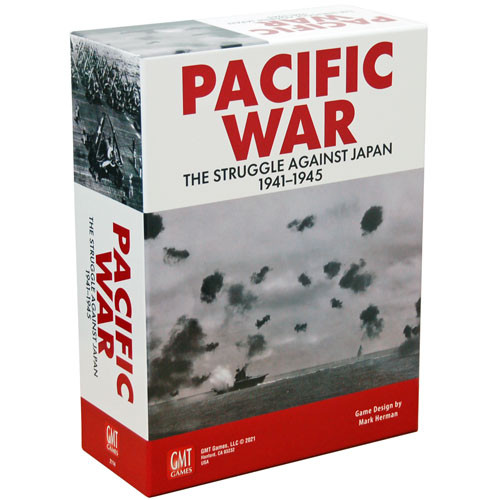I was never a war gamer before 2024. Not really. I received the old Gamemaster Series Axis and Allies for Christmas when I was in Junior High. My friends and I had played Risk before, but this was something entirely new and exciting. It wasn't long after that we were playing other games in that series too. A while later I received The Hunt for Red October and its companion game - Red Storm Rising (neither of which really drew interest from my friends). And that was it (for both war gaming and board games) until I re-discovered boardgames in early 2000s
But rediscovering boardgames meant Euros and fantasy games like Descent - definitely not war games with their hex and counter maps and stacks of chits about boring conflicts that happened oh so long ago.
At some point in-between 2005 and today, I played a couple GMT games - Combat Commander has been one (if not THE) top game I've played. Twilight Struggle is another completely amazing game I tried from them. But still I resisted the call of the big hex and counter games with their arcane NATO symbols for infantry and armored units and their overabundance of numbers, big and small and multi-colored.
Then, somehow in the last couple of years I came to realize that the various games GMT produced were my cup of tea. For whatever reason, history became more interesting and the hex and counter games, which had never been interested in, looked fun and suddenly intrigued me.
So I did what any fanatic would - I found a conflict that interested me and found a suitable match from GMT's catalog of games. For me, it was not Ancients, The American Civil War, or even WWII (though somehow in the last year I've gone from 1 to 14 WWII games in my library...).
Well, I found a copy of Next War: Korea (2nd ed), which is the first in the series, and traded for it. It was unpunched and essentially new - it was like Christmas all over again. I spent a few nights punching it out, sorting it (I guessed a lot) and clipping this beast (I'm no barbarian, I counter clip). And then I was ready to start reading the standard ruleset. You haven't heard? There are two sets of rules for the Next War series, the "basic" and advanced rules.
To say I was confused and having a hard time learning the standard ruleset might be an understatement - I mean I had no background in this. There should be a sheet of paper included with each Next War game that states: "If you are new to hex and counter games, good luck!" I don't know if the rules are bad per se, but they definitely seem to be written for gamers that already know and understand about combat tables, column shifts, DRMs, ZOCs, and other terms and concepts. These rules are there to tell you the rules, not explain how to apply them and play the game.
For me, this was like trying to learn a new language without a teacher. And I couldn't seem to find any help from YouTube. Oh, there are a few 90+ min videos that try and explain the rules - but not a lot of them. And (sorry), they couldn't hold my attention. I wanted to learn to play, but the videos I was finding were not exciting me to learn, they were as much a barrier to entry as the rules themselves.
At one point, I just decided the best way to do learn was going to be to try and explain the rules. So I started writing blog posts. And yeah, they were about the same as reading the rules, but at least I was starting to understand and stuff was sticking a little bit. But I was also losing interest and took a break from trying to learn Next War to learn some other stuff.
But here I am, back again. I pulled down my posts and decided to try a different approach.So I want to do this. Break down bits of the game as simple scenarios - learning the game without trying to truck through 30+ pages of boring rules. I think a simple setup, read a couple sections of stuff and go from there. At the time that I'm starting this, I only own Next War:Korea, but I suspect I'll have at least Next War:Iran by the time I get through the standard rule set. Let's see what I can put together.




No comments:
Post a Comment